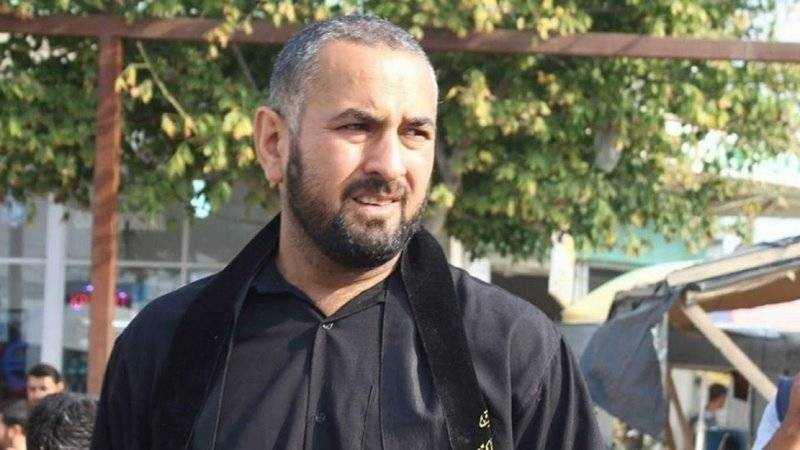საერთო ცხელი ხაზი +995 577 07 05 63


Human Rights Education and Monitoring Center (EMC) addresses the examination of Sheikh Mirtagi Asadov at State Security Service (SSS) and considers the opening of investigation under sabotage article in connection with the social protest in Marneuli and Bolnisi communities as a violation of legal and social state. Also, EMC considers that this is one more example of the excessive intervention of SSS in minority related policies.
On April 17, 2020, Mirtagi Asadov, Chairman of the Supreme Religious Administration of Georgia's All Muslims, and R.A., a founder of the same organization, were questioned at SSS in connection with the social protests of the local communities of Marneuli and Bolnisi municipalities. As known for the society, during the last days, Marneuli and Bolnisi residents, have been protesting social crises created by quarantine regime in the municipalities from their yards with trumpets, whistles, and applause from 21:00 to 21:05, when the Commandant hour began. As citizens explained, the local population was lefts without jobs and daily salaries due to the quarantine period, they are unable to sell their agricultural products. The manifestation aimed to inform the state authorities and the public about the difficult social and economic challenges in the municipality. For this social protest, State Security Service commenced an investigation under Article 318 (1) Criminal Code of Georgia, which prescribes responsibility for Sabotage.
During the questioning of religious authorities, on April 17, the investigative body was interested what they aimed when publicizing information on manifestation in their social networks, whether they hold information on the risks of new coronavirus proliferation and whether they aimed to support citizens to violate the requirements under the existing special regime and to create a massive disorder. The questioned persons provided all-inclusive information about the social manifestation to the investigative body and also clarified that there was no sign of criminal act or violation of special emergency regime and they have not called others for such actions either. Moreover, they pointed out that expression of protest after 21:00 aimed exactly to protect the quarantine regime.
The form, content, and other circumstances of the social protest do not indicate to the violation of emergency regime established under the Presidential decree of 21 March 2020, also do not contain the signs of any criminal act prescribed under the Criminal Code of Georgia, particularly the signs of sabotage. Article 17 of the Constitution of Georgia guarantees freedom of expression, which on the one hand, prohibits persecution of citizens for free expression of opinion, on the other hand, guarantees the right to receive and disseminate information. It is important to note, that freedom of expression has not been restricted under 21 March Presidential Decree. Also, it should be highlighted that the criminal act under Article 318(1) of Criminal Code of Georgia prescribes “Interference with the normal functioning of public or other enterprises, institutions, organizations or agencies with the purpose of weakening of Georgia” and clearly, social protest expressed with car trumpets cannot be considered as the aim of the state weakening and sabotage.
The questions of the investigative body during the examination and absurdity legal grounds of the investigation indicate that it aimed at suppressing social protest and intimidating individuals. While during the pandemic, the facts of open disregard of the law by the Orthodox Church hierarchs is left beyond state’s legal actions and on the opposite, it is subject of open loyalty, the examination of Muslim religious leaders at SSS concerning the social protest, which falls under freedom of expression and underframes of emergency restrictions, is the sign of arbitrariness and causes inequality feelings in the local community. The application of law enforcement measures to suppress social discontent violates constitutional principles of the legal and social state. Instead of answering social needs and concerns with effective, fair, and sustainable social protection policies and democratic dialogue, the State is using law-enforcement and repressive apparatus. The legal assessment of such facts as sabotage is further problematic and, in this way, the introduction of SSS in the process, which itself is an object of sharp criticism for excessive intervention and control of ethnic and religious minorities and its narrow security gaze.
The local social situation substantially deteriorated in Marneuli and Bolnisi municipalities after the establishment of a strict quarantine regime on 22 March. In the villages of these municipalities, access to basic social infrastructure, including drinking water, pharmacies, and shops, was already problematic. The majority of the local community is self-employed in agriculture and trade. The unfair land distribution practice left the majority of local peasants without their own land resources and they are employed as cheap laborers in so-called “Arendators” lands and greenhouses. In such conditions, it is obvious that a large number of families relied on daily income. The restriction of freedom of movement of losing jobs, also lack of adequate and fair practice of agricultural product trade, left the majority of families without income, and further hardened their social conditions. The humanitarian support programs are weak, fragmental, and cannot respond to the real local needs. Unsurprisingly, such a situation became the reason of social discontent and residents of cities and villages isolated in quarantine, require additional social support.
Reflecting on above-mentioned, EMC calls to the:
Government of Georgia:
State Security Service:
The website accessibility instruction